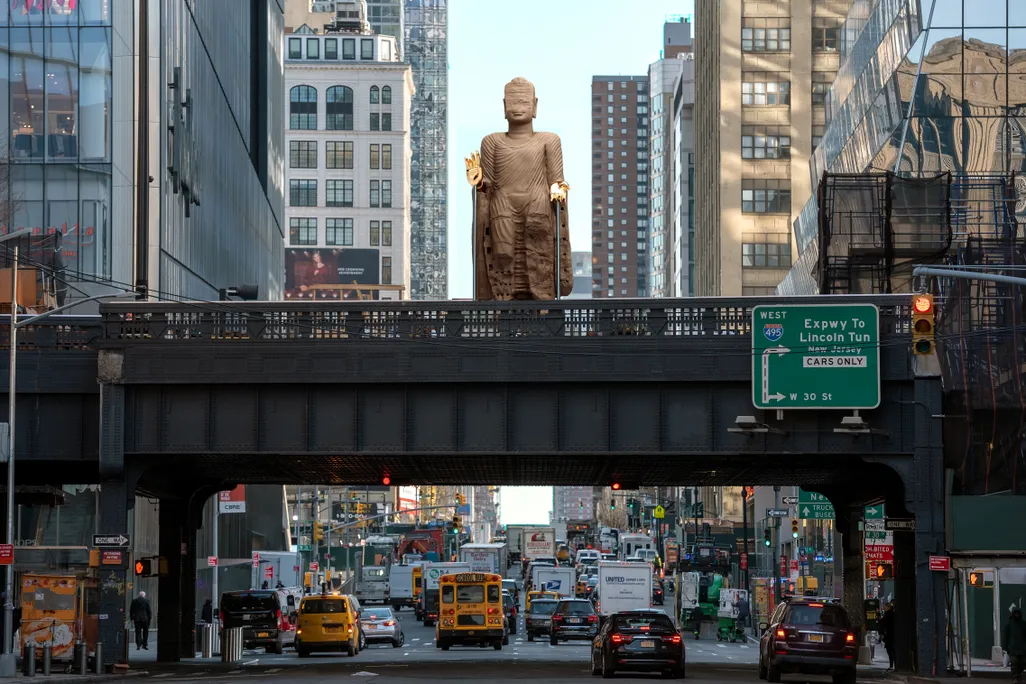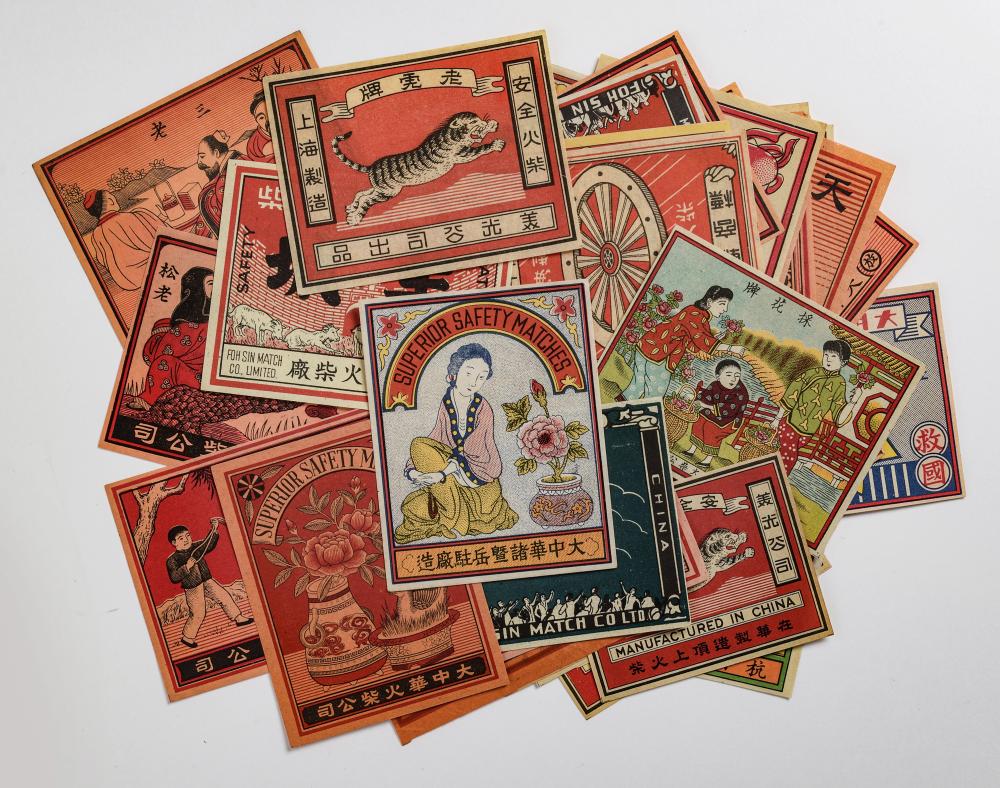Iconic Chinese-American writer Eileen Chang was born on September 30, 1920. To celebrate the late author’s birthday, we’re revisiting one of her lesser-known stories, “Xiao’ai.”
Eileen Chang, also known as Zhang Ailing, passed away in 1995 in a sparsely furnished apartment on Rochester Avenue in Los Angeles, California. While she can technically be considered an Asian-American writer, her works barely touch on the Asian-American experience.
Instead, she translated, wrote and rewrote topics that she was familiar with, reliving the life and world she left behind in Shanghai, with one of her earliest published stories — and least studied — standing out as one of her most intriguing pieces of work.
Very little is known about Eileen Chang’s time in the People’s Republic of China, founded in 1949. Most of this is due to the low profile she kept at the time, because of her standing as the former wife of a Japanese collaborator and the famous descendent of Qing Dynasty officials.
Under the pen name Liang Jing, Eileen Chang published just two stories while living in the PRC, “Eighteen Springs” in 1950 and “Xiao’ai” in 1951. Both stories were initially serialized in Yibao, a short-lived private newspaper based in Shanghai from 1949 until 1952. While “Eighteen Springs” was later expanded into the novel Half a Lifelong Romance and adapted numerous times into film and television series, “Xiao’ai” has never been rewritten or adapted.
“Xiao’ai” is Politics at Work
Compared to Chang’s more famous works, very little attention has been dedicated to “Xiao’ai,” possibly due to the story’s poor structure and unrelatable characters. The title, which translates to ‘little artemisia,’ is the name of the female protagonist.
What we can say about “Xiao’ai” is that it marks a very unusual time in Chang’s life and career. From the Communist takeover in 1949 until she returned to Hong Kong in 1952, these were the last few years she spent in her homeland, which was undergoing significant changes at the time.
Her time in Hong Kong was another significant turn in her career. She wrote two novels commissioned by the United States Information Service, both of which expressed anti-Communist sentiment. Chang often expressed her dislike of “Xiao’ai” in written correspondences and the introductions to her anthologies Rippling Rhymes and Sequel, mainly criticizing the story for its lack of a strong plot.

Eileen Chang in China in 1946
Significantly, despite Xiao’ai being the titular character, she doesn’t appear in the story until quite late, making her first appearance as a child servant. Most of the focus at the beginning is on the Fifth Mistress of the Xi family and her husband’s concubine Yifei. Both female characters are well-portrayed and come to life through vivid descriptions of their physical appearances and psychological development.
In the story, the boorish Fifth Mistress stands in stark contrast to the elegantly slender Yifei, who was a courtesan before her marriage. Her social skills contribute to magnifying the awkwardness of the Fifth Mistress in the presence of others. The Fifth Mistress’s family and names are never mentioned, and nothing from her past is ever discussed, as if her only identity is tied to her marriage.
As the third leading female character, Xiao’ai stands as a marginal figure until the last half of the novelette. The story takes a significant turn when Xiao’ai is raped by her master, resulting in a pregnancy that ends in miscarriage after a brutal beating by Yifei.

Eileen Chang in Hangzhou in 1930
This is a point where we see major differences between Chang’s early works and her later pieces. If this scenario took place in another Chang story, Xiao’ai would be promoted to become a concubine, and her child would become a destabilizing factor in the family.
However, as a story with proletarian themes catering to a young PRC, Xiao’ai is more of a tool than a character that showcases the lives of the poor. She has no personality, and her only trait worth mentioning multiple times is that she grew up to be a lovely young woman. As to what qualities make her attractive, they are never specified. As a child of the upper class, Chang’s lack of knowledge about the lower classes of the time is evident in her vague and general portrayals of servants, peasants and refugees.
After leaving the Xi household, Xiao’ai’s married life is plagued by poverty, illness, and war. Not only is there little opportunity to develop her character in the second half of the novelette, but there is also little emotional and psychological depth described in Xiao’ai’s suffering. She is simply kept busy at all times with work that earns her a meager wage.
Alternate Endings
Chang wore the pen name Liang Jing like a jacket, using it when she needed to cover herself from criticism and shedding it when it was no longer necessary. It wasn’t until 1987 that Chang admitted she was Liang Jing, with both “Xiao’ai” and Half a Lifelong Romance published in her own name later on.
According to the scholar Kao Chuan Chih in his book Eileen Chang Reconsidered, there are at least six different versions of “Xiao’ai” that have been published across the Sinophone world, in places like the Chinese mainland, Taiwan, and Hong Kong. Regardless of whether the various versions had rearranged chapters or omitted content, the most significant difference in each is in the ending.
One of the more widely circulating versions of “Xiao’ai” is in the anthology Rippling Rhymes, published by Taiwanese Crown Publications, which has the ‘politically sanitized’ version of the story with an open ending:
Xiao’ai said through gritted teeth, “I hate the Xi family to death, they caused me to have this illness. All these years have passed, but my life will still end in their hands.” Jinhuai said, “No, you won’t die. I won’t let you die.” His voice was very low, as if it was his heart that was yelling out the words.
Jinhuai is Xiao’ai’s husband, and this conversation takes place as the couple travels to the hospital, with Xiao’ai’s illness resulting from not having received medical attention after her miscarriage. The tone of this conversation is very solemn, but there is no definitive indication of whether Xiao’ai lives or dies.
The most recent version of the story, included in the anthology Tulip, was published by Beijing Shiyue Wenyi Chubanshe in 2006. The editor of Tulip, Professor Chen Zishan of East China Normal University, explained in the “Postscript” that Tulip’s version of “Xiao’ai” is the same version first serialized in Yibao. In this version, there is a slight change to the paragraph cited above:
Xiao’ai said through gritted teeth, “I hate the Xi family to death, they caused me to have this illness, all these years have passed, but my life will still end in their hands.” Jinhuai said, “No you won’t, they are finished, now it is our world. You won’t die. You won’t die.”
Jinhuai’s tone in this version is strong and positive. There is also more context to the ending in this version, as the couple arrives at a government-run hospital, and Xiao’ai receives excellent medical care. She later finds a job folding paper at the same press that employs Jinhuai and eventually becomes pregnant. This ending is not only rosy but the PRC takeover of China is portrayed as the solution to all problems.
Finding Fame
Eileen Chang’s eventual rise to fame with her early works attests to her talent, but most important of all was the freedom she enjoyed despite living in occupied Shanghai. Ironically, once the city was liberated, Chang became trapped in a highly politicized environment where she felt that venturing into unfamiliar topics became an essential part of her writing.
Due to the political complications in China and the Cold War, Chang’s work was only “rediscovered” by C.T. Hsia in his groundbreaking A History of Modern Chinese Fiction. However, as Liu Zaifu mentions, Hsia was also heavily biased in his critique of authors, expressing blanket negativity towards leftist authors and their works. Both authors and literary critics were not immune to their political environments, which is still true today (a recent example being Fang Fang’s Wuhan Diary).

Eileen Chang in 1926
The posthumous publications of Chang’s Little Reunions, The Fall of the Pagoda, and The Book of Change have also contributed to renewed interest in her works.
The continuous adaptations of her works on small and big screens contribute to keeping her stories alive in the imaginations of younger audiences. Most importantly, as Professor Clara Iwasaki of the University of Alberta points out, Chang may not have any biological children, but she has many literary descendants as her work has left indelible marks on later generations.
Cover image designed by Sabina Islas


















